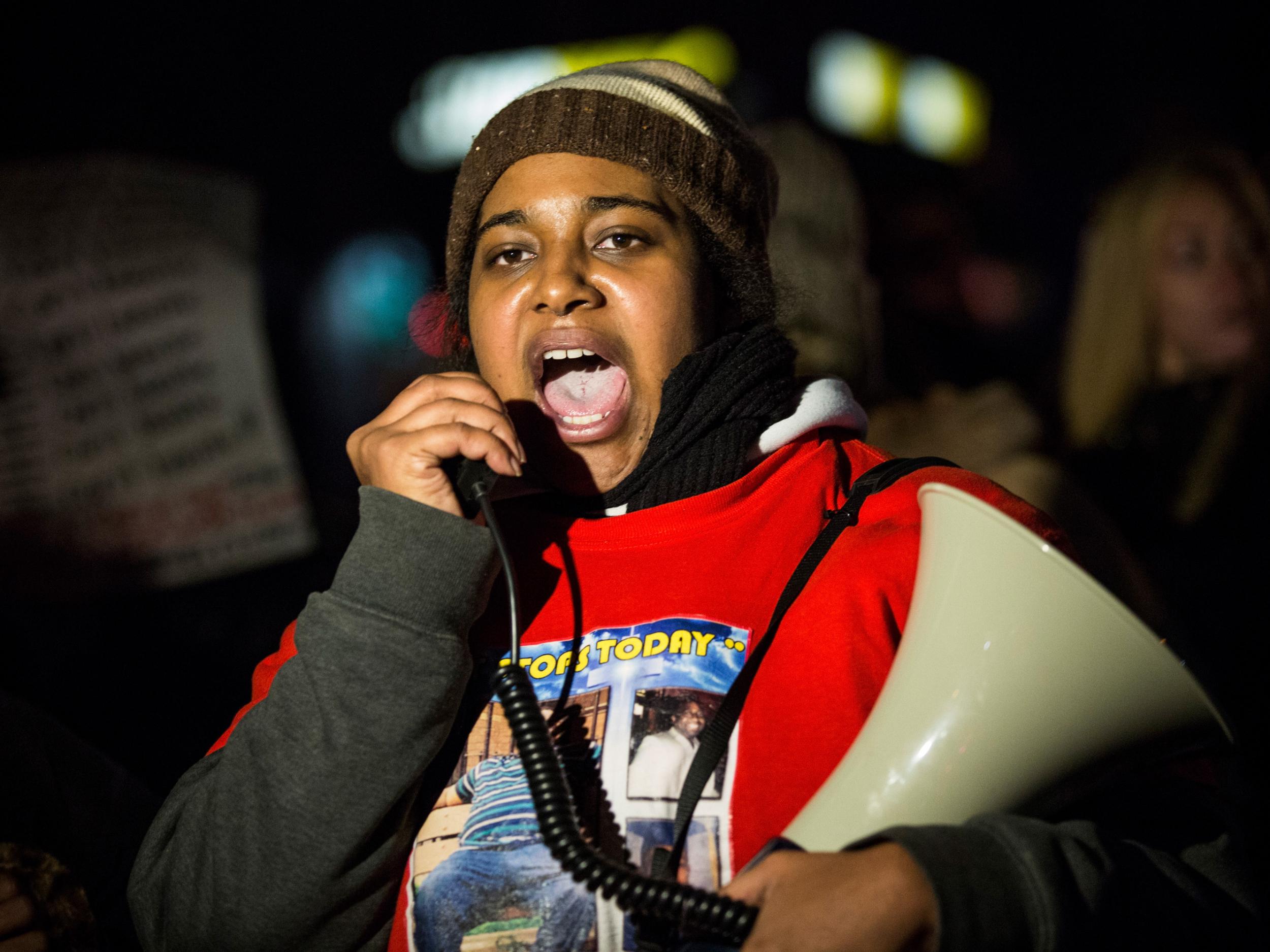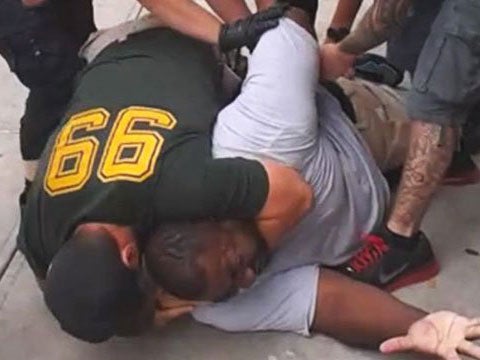Erica Garner: US civil rights activist whose father was killed by chokehold during an arrest in New York
After a video of Eric Garner being manhandled by NYPD officers went viral, his daughter was catapulted into the limelight. Rather than shy away, Erica Garner took the media by the horns to seek justice which eluded her, holding a mirror up to America in the process

“I was a Daddy’s girl,” said Erica Garner in an interview with Chaédria LaBouvier for Elle. “We never heard ‘No’. If I needed something, my father provided. If he couldn’t do it right then, he’d say, ‘Give me time,’ but he never said ‘No’.”
Little did young Erica Garner know she would come to repay that love a thousand times over.
Garner was born in Woodhull Hospital, Brooklyn, to Esaw Garner Snipes and Eric Garner. She was her mother Esaw’s third child and her father’s first.
Eric Garner was a big man. At six three, he was undoubtedly an imposing figure, but his chronic asthma made working hard. As a result he left his job as a gardener to become a stay-at-home dad to Erica and her three siblings. He did the school run and helped with homework. His daughter remembered him as being especially good at maths.
Garner was devoted to her father. When, on 17 July 2014, she received the call to tell her he’d “stopped breathing”, she assumed he’d suffered an asthma attack. What actually happened was that NYPD officers on Staten Island had stopped Eric Garner on suspicion of selling “loosies” (single cigarettes without a tax stamp). As he resisted arrest, officer Daniel Pantaleo took him in a chokehold and wrestled him to the ground. Four other officers helped Pantaleo hold Eric Garner face down on the pavement.
On a video made by his friend Ramsey Orta, Eric Garner can clearly be heard telling the police he can’t breathe in that chokehold. He utters the words “I can’t breathe” a total of 11 times before he falls silent. None of the officers attempted resuscitation. Eric Garner was pronounced dead an hour later.
Devastated by her father’s death, Erica Garner watched the video footage over and over. Seeing the video himself, the Rev Al Sharpton quickly organised a protest on Staten Island. The chokehold Pantaleo used was illegal, if commonly applied. Coming horribly soon after the shooting of Michael Brown – the 18-year-old killed by police in Ferguson, Missouri – Eric Garner’s death raised questions about excessive use of force by police and accusations of murder.
It was a month after her father’s death that Erica first decided to march in her father’s memory.
She would make for the spot where her father died, not just once or twice but over and over and over. She marched every Tuesday and Thursday for almost three years. The marches started after business hours, so local workers could join in, and the route was the same every time.
From the ferry port to the Supreme Court to the 126th precinct. Garner’s mantra as she marched: “I can’t breathe”, 11 times. Just like her dad.
Each march ended outside the Victory Boulevard Bodega. There Garner would lie down on the floor in imitation of her father’s death, prompting the press to dub the the protests “die-ins”.
“I felt his spirit when I was walking down to the spot,” Garner told the Daily News.
The marches gave Garner a renewed sense of purpose. She told Chaedria LaBouvier, who lost her own brother Clinton Allen to police brutality: “I’ve absolutely discovered what I want to do with my life. Before, I was just kind of aimless, not sure what I was going to be doing. Now I know.”

Garner marched for her father. She marched for Black Lives Matter – his death was pivotal to the movement’s genesis. She marched against police brutality. She set up the Garner Way Foundation in her father’s name, “to engage communities all over the world in social justice issues”.
When Pantaleo was not indicted for her father’s murder, she said: “I was heartbroken about the decision in Ferguson, but when my father’s case came down, it’s almost like I was expecting it.”
But not accepting it.
Garner didn’t only campaign for the rights of black people. She believed police brutality wasn’t a race issue. “It’s about police officers abusing their power,” she said.
Even after the family was awarded a settlement of $5.9m (£4.35m) for Eric’s death, Garner worked tirelessly to campaign to have the transcripts of the grand jury trial that exonerated Pantaleo made public. She took her message to the highest level, meeting President Obama and making a campaign video on behalf of Bernie Sanders in the 2016 presidential elections.
Garner’s video made a powerful point and had the establishment worried. A leaked email from that time reveals that Harvey Weinstein urged Clinton’s campaign manager Robby Mook to “silence” Garner’s message.
Garner urged her supporters: “Consider what we are fighting for. Is it reform or revolution? Which of these will bring real change? Will body cameras make a difference? Will training really stop this epidemic of police-involved killings, or will it just create better killers? Who do our elected officials really work for? More importantly, what will we do if we learn it’s not the people?”
She felt Sanders “got it”. Endorsing his campaign, she said: “It’s for my daughter; it’s for the next generation of African Americans.”
Erica Garner had two children. Her daughter Alyssa was five when her “Pop Pop” was killed in 2014. Alyssa grew up with her mother’s campaign. In 2017 she had a second child: a son, named Eric in his grandfather’s memory. Shortly after Eric’s birth, Garner suffered a heart attack and was discovered to have an enlarged heart.
Garner had a second heart attack on 23 December 2017. She fell into a coma and died a week later, surrounded by her family. She was just 27 years old.
The Reverend Al Sharpton said of his friend and comrade: “She was a warrior to the end.”
In an interview with The Guardian shortly before her death, Garner summed up her continuing fight. “I believe in justice. I believe it’s going to take a long time but it’s gonna come. Change is gonna come.”
Erica Garner, civil rights activist, born 29 May 1990, died 30 December 2017
Join our commenting forum
Join thought-provoking conversations, follow other Independent readers and see their replies
Comments
Bookmark popover
Removed from bookmarks